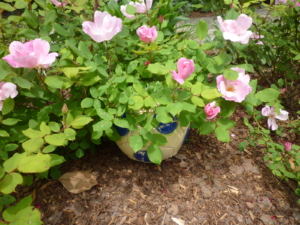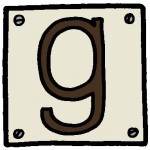Garden Party
Weeping willow wears a gown
Of leafy lace that sweeps the ground.
Under her skirt we blow grass horns
And watch the daisies dance a round.
(c) Elizabeth Steinglass, 2013, all rights reserved
Welcome Poetry Friday visitors. Please join the party
by leaving your links in the comments. I’ll come by later
and add them to my post.
Happy Poetry Friday!
Liz
Here’s today’s round-up:
Looking for something rhyming and funny? See Jeff at NC Teacher Stuff whose colleague Wayne Leonard made a short video in response to a student challenge.
During National Poetry Month Laura Salas was so busy with her poem starter videos and other commitments, she missed out on other blogs. This Friday she’s heading over to Jama Rattigan’s list of Poetry Month celebrations. She’s also wondering what Poetry Month blogs we particularly enjoyed visiting.
At Random Noodling Diane is taking a breath after National Poetry Month and sharing a favorite cat poem by Denise Levertov.
At Kurious Kitty Diane shares “I Left My Head” by Lilian Moore, a poem which may speak both to the younger and the older crowd, and probably quite a few in the middle.
Diane has an explosive quote by Lilian Moore at at KK’s Kwotes.
Author Amok, Laura Shovan has been working with third graders writing scientific Fibonacci poems. Today she shares a couple of her students’ poems and her lesson plans.
Bridget at Wee Words for Wee Ones has an original foggy day, dog walking poem.
At Crackles of Speech Steven Withrow has an original poem about the lion who guards “The Library Steps.”
Robyn Hood Black has some laugh-out-loud student limericks from the Fair Street School at Life on the Deckle Edge.
In the mood for something odd? Myra has Tim Burton’s Melancholy Death of Oyster Boy at Gathering Books.
Congratulations to Linda who is celebrating her 500th post at TeacherDance! This week she’s taking time to reflect on the important things about blogging. She also shares “The Seven of Pentacles” by Marge Piercy.
Charles Gingha, aka Father Goose, is celebrating May with his original poem “Happy Birthday, May!”
Renee LaTulippe at No Water River has two posts to share this morning:
The first stars Amy Ludwig VanDerwater, who comes out of her enchanted forest to share “Puff,” a poem from her new book Forest Has a Song.
The second is a poetry video and a video interview with the beloved poet and anthologist, Lee Bennett Hopkins.
Matt Forrest Esenwine at Radio, Rhythm & Rhyme seems to have a touch of spring fever. This morning he shares an original poem, “Wildflowers, for Jane.” Who’s Jane? Jane Yolen, of course!
Tabatha Yeatts at The Opposite of Indifference shares poems from Poetry Out Loud, the amazing Nation Recitation Contest.
Mary Lee Hahn is also sharing poems about cats and has a link to even more cat poems at A Year of Reading.
Heidi Mordhorst has some really lovely poems by her kindergarten students, the Mighty Minnows, at My Juicy Little Universe.
Margaret at Reflections on the Teche has been reading I Love You the Purplest by Barbara M. Joosse with her students and working with them to write Mother’s Day poems. I know some moms who are going to get really special gifts this year.
Now that National Poetry Month is over, it’s time for Get Caught Reading! Kick off this next celebration At Reading to the Core with Robert Louis Stevenson’s “Picture-books in Winter.”
Before heading to the ocean on the 8th grade retreat, Ruth at There is no such thing as a God-forsaken town posted Jack Spicer’s “Any fool can get into an ocean…”
At Used Books in Class you will find a touching post about the impossibility of repaying mothers and Billy Collins’s poem, “The Lanyard.”
This week Irene Latham shares answers to questions such as “Why is poetry important?” and “Where do poems come from?
Irene has also posted the complete 2013 Kidlitosphere Progressive Poem. It’s quite a ride.
Betsy at Teaching Young Writers shares an original poem, “Winter Memories,” and a link to #chalkabration celebrations from the week. If you have a moment and can visit it was a dusty good time.
At Inside the Dog Steve Peterson shares an original haibun about fly fishing that was inspired by Mary Lee’s April poetry challenge.
Capping off National Poetry Month, Penny Klosterman, a teacher for 26 years, shares an extensive Poetry Resource page for teachers.
Donna at Mainely Write has four different versions of her poem, “Robin’s Proclamation.” Which do you prefer?
Doraine Bennett explores sestinas at DoriReads.
Sylvia Vardell and Janet Wong are already thinking about summer. Today at the Poetry Friday Anthology blog they are sharing Debbie Levy’s poem “My Best Friend is Leaving.” And at the Poetry Friday Anthology for Middle School blog they have a poem movie by Phyllis Yarbro, featuring Marilyn Singer’s poem, “Body Art.”
Amy Merrill at Mrs. Merrill’s Book Break pairs poetry and origami (thanks to Kristine O’Connell George!).
Today at The Writer’s Whimsy Tamera Will Wissinger is celebrating poets and National Poetry Month with a tercet epigram and also recapping her April Poetry activities.
At Wild Rose Reader Elaine has an original poem titled “Puddle Muddle” and announces the winner of “Puddle Wonderful: Poems to Welcome Spring.”
Becky Shillington discusses ekphrastic poetry and shares an original poem “Hope.”
Though it’s still snowing in Minnesota, Jill at Orange Marmalade is thinking spring and shares a hopeful poem about seeds from The Book of The Seasons: An Anthology by Eve Garnett.
At Bildungsroman, Little Willow shares the opening of Eva of the Farm, a verse novel by Dia Calhoun.
Today’s Little Ditty features “Tuesday’s Miracle” a celebration of spring and babies by Michelle H. Barnes.
Ms. Mac has more than 98 reasons to celebrate student work at Check it Out!
Readertotz has a wonderful rhyming board book “Tea Time” by Karen Rostoker-Gruber.
At On Point Lorie Ann Grover has a haiku entitled “Triangle Dresses.” Where have you seen ladies in triangle dresses?
David Elzey is in with his 30th and final Pulitzer Remix post. To celebrate National Poetry Month, he’s been extracting poems from “The Stories of John Cheever.” This week he has a stunning poem from the story “The Enormous Radio.”
Janet Squires at All About the Books shares Dogku by Andrew Clements, illustrated by Tim Bowers.






